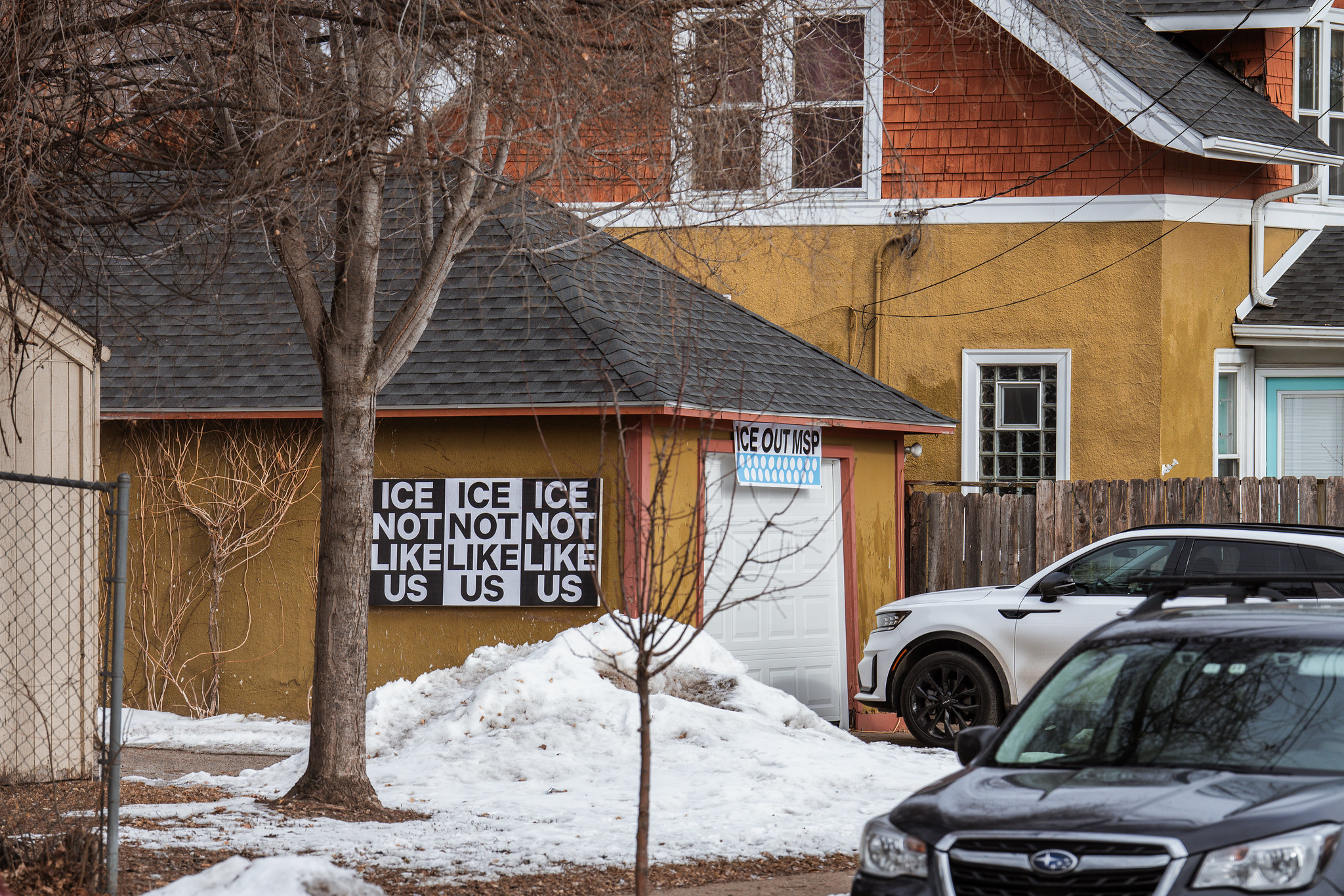Analyze the tenor of U.S. media coverage around a potential UPS strike for even a second, and you'll notice some trends.
- "UPS strike could disrupt package delivery. Here's how," NPR warns.
- "A massive UPS strike could devastate the economy. It could be just eight weeks away," CNN screams.
- "Major disruptions expected if UPS workers strike by end of July," KARE-11 reports, quite broadly, from home.
Largely absent, as explored in this recent episode of media criticism podcast Citations Needed, is any headline emphasis on what a work stoppage would mean for 340,000 UPS workers. And workers everywhere, for that matter.
"The size of this possible strike amplifies its significance," says labor historian Peter Rachleff, a former Macalester College professor and co-founder of the East Side Freedom Library. "At its heart, it addresses issues which concern virtually all workers: safe working conditions, employer surveillance of workers, pathways for part-time workers to become full-time, and wage increases that reflect productivity and keep up with inflation. If the Teamsters can make gains on these issues, all workers will benefit."
Last month 97% of voting Teamsters union members authorized the UPS strike, which would be the country's largest since a half-million steelworkers walked off the job in 1959, NBC News reports. (Though U.S. union membership rates hover near historic lows today, strike activity spiked by almost 50% last year, according to the Economic Policy Institute.) UPS workers last went on strike in 1997, and the number of folks employed there has since doubled.
Those numbers represent the only real leverage labor has over a $100 billion global shipping giant that recently authorized $5 billion in investor-enriching stock buybacks. (CEO Carol Tomé's compensation package was trimmed down from $27.6 million in 2021 to $19 million last year, rendering the buybacks slightly less lucrative for her.) Earlier this month, the UPS Teamsters National Negotiating Committee saw UPS brass "walk away from the bargaining table after presenting an unacceptable offer," one that it unanimously rejected. Company PR reps blame the union for turning their noses up at "historic proposals that build on our industry-leading pay."
As the strike deadline fast approaches, we wondered: What are the real-world implications for the Minnesota UPS workers who help move 24.3 million packages per day?
Cortez Miller has been with the company for 21 years, the most recent 14 of them as a delivery driver. He met this reporter's goofy question about whether UPS's brown trucks are really barred from left turns with a hearty chuckle. "That's more of a myth," he says. "We make some left turns." Miller says his route through Roseville is physically and mentally taxing, but "every day is an adventure."
Workday adventures are tougher for drivers who've been placed at a lower contract tier, he explains: Those workers make less money and can't apply for certain benefits like restricting daily drive times to under nine-and-half hours. Their rights have become a key fight during contract negotiations.
"Basically, we’re no different; we’re all just human beings," Miller says. "We’re doing the same job, but the company wants to beat those guys up more, basically work ‘em harder to do certain things because they don’t have top-tier benefits. It’s not fair to those individuals—you might as well be working for a totally different company.”
Rikki Schreiner has worked out of UPS's Eagan warehouse since 1999. "I'm an old-timer" she says with a laugh, before catching herself. "I shouldn’t even say that; I have a guy I work with, and next summer will be his 40-year mark.” The "aftermath" of the '97 strike was still fresh when she was hired, and supervisors would tell "nightmarish" stories about scrambling, Mr. Burns-like, to keep operations moving during the 15-day work stoppage.
These days Schreiner, who serves as shop union steward, splits her shifts between two tasks—one physically easy, one physically demanding. ("Some jobs are hard job-hard job," she notes.) For half the day she'll weigh and measure packages, and for the other half she'll load 'em onto semi trailers.
Workplace morale turned grim during the worst of the pandemic, she reports, with workers powering through weekends and holidays while UPS enjoyed record profits. Schreiner thinks those grueling 60-hour weeks radicalized some previously tamer coworkers.
"We're fed up; we lost coworkers," she says of the months they were deemed essential workers. "This is the most successful shipping company that exists, and it's because of us."
When it comes to the contract impasse, Schreiner rattles off secondary grievances like workplace safety and harassment guidelines, but the biggest sticking point is obvious.
“We’re stuck on pay,” she says. “They’re offering us a piddly, piddly wage increase. An insult, is what it is.”
How insulting? Fifty-five cents per hour each year, she says, adding that anything less than $1 per hour amounts to "a slap in the face."
Schreiner co-signs Racket's assessment of how mainstream media handles UPS strike coverage, calling it "derogatory."
"They take out the human aspect, focusing on what it'll do to the economy," she says. "No mention of what it'll do to the people who work there, what we deserve, or what this means for us. It's never about the people."
Both Schreiner and Miller stressed that UPS workers don't want to strike. They say the company has pushed them to that brink, and they're not afraid to follow through. Despite the inherent tension and uncertainty around the future, solidarity in the workplace is reportedly stronger than ever.
“I still got a lotta years left before I retire; I wanna work, but I also gotta do what’s best for the union,” Miller says. “It comes down to midnight on August 1: If they agree and we agree, we’ll be back working. But if we don’t? Then we’re gonna strike, and I think that’s a pretty strong possibility. Working-class people deserve the best. We put this company on our back, and we carry this company. We need the respect we deserve, you know?”






